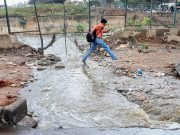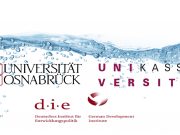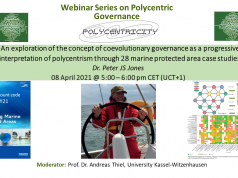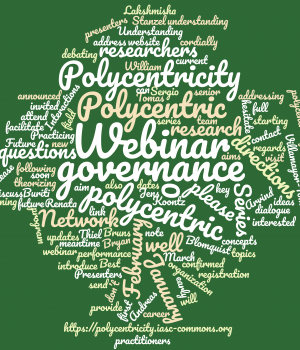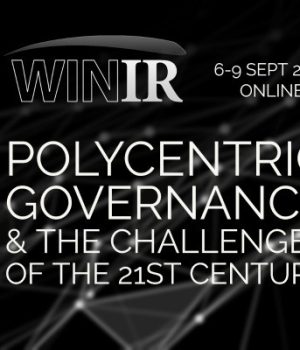
Postdoctoral and Senior Researchers
The Käte Hamburger Kolleg/Centre for Global Cooperation Research (KHK/GCR21) invites applications for Research Fellowships with duration of 12 months starting between February and September 2021. Proposals are especially welcome regarding: (1) critique, justification and legitimacy in global cooperation; and (2) global cooperation and competing conceptions of world order. The fully funded fellowships are available to both senior and postdoctoral researchers across the humanities and social sciences. Deadline for applications is 1 st June 2020.
We are aware that this call comes at a time of high uncertainty around COVID-19. We are monitoring closely the evolving situation and hope that circumstances will allow the advertised fellowships to start as planned from February 2021 onwards. We therefore urge you to apply if you are interested but still uncertain about the practicability of the fellowship!
The KHK/GCR21
The Centre for Global Cooperation Research at the University of Duisburg-Essen is one of ten Käte Hamburger Kollegs sponsored by the German Federal Ministry of Education and Research. Established in 2012, the Centre is an interdisciplinary and international learning community that seeks to enhance understanding of the possibilities and limits of global cooperation and to explore new options for global public policy. The working language at the Centre is English.
In its second funding period (2018-2023), the Centre’s research and fellowships are organized around four broad themes: pathways and mechanisms of global cooperation; global cooperation and polycentric governance; critique, justification and legitimacy in global cooperation; and global cooperation and competing conceptions of world order. Empirical research on these themes focuses especially on the governance of climate change, the internet, migration, and peacebuilding. The Centre will issue thematic calls for application on an annual basis.
Fellowships 2021-2022
For next year we invite fellowship applications from across the humanities and social sciences (including also psychology, law and economics) in relation to the second two main themes, as detailed below. We particularly encourage female researchers and scholars from the Global South to apply. Applications from scholars at risk are welcome.
Benefits to Fellows
- An intellectually stimulating and vibrant interdisciplinary learning community
- Excellent infrastructure with fully equipped offices, library facilities, and administrative support (also with finding accommodation)
- Funds to organize workshops (subject to approval, with preference especially to workshops that emerge from an interdisciplinary exchange with other researchers at the Centre)
- Either a monthly stipend commensurate with experience or financing of a teaching replacement at the home institution
Expectations from Fellows
- A completed PhD ? Personal research and publication in the Centre’s thematic areas
- A contribution to the Centre’s own publications ? Regular active participation in seminars and other Centre events
- Collaboration with other fellows in interdisciplinary exchange
- Work in residence at the Centre in Duisburg, Germany
Themes 2021-2022
The Centre’s work in the period of 2021-2022 will focus on the themes ‘Critique, Justification and Legitimacy in Global Cooperation’ and ‘Global Cooperation and Competing Conceptions of World Order’. We especially invite fellowship applications that address these themes, as described below. In addition, preference will be given to applications with an empirical focus on the governance of climate change, the internet, migration, and peacebuilding.
Critique, Justification and Legitimacy in Global Cooperation
Legitimacy – and its contestation – is a vital question for global cooperation. Legitimacy refers to the belief and perception that a governing force has rightful authority and exercises it appropriately. Legitimacy can be both normative (i.e. determined by moral judgement) and sociological (i.e. observed in political behaviour).
Scholarship from various disciplines has usually examined legitimacy in relation to the state, but more recent scholarship understands legitimacy as a fragile, politicized, and contested phenomenon that involves a wider range of political forces, including multilateral institutions, private global governance, and transnational social movements.
This processual notion of legitimacy – the interplay between critique and justification – leads to many conceptual, theoretical, and methodological challenges. It implies considering politicization processes and power relations across scales (at local, national and transnational levels), a broad spectrum of political actors in their complex relationships, and new forms of resistance against formal authorities (e.g. by whistleblowers, young climate activists, right-wing networks). Sites of resistance include – but are not limited to – civil society associations, social movements, and everyday practices of ordinary citizens. Delegitimation can come from ‘left-wing’ and ‘right-wing’ angles, from communitarians as well as cosmopolitans.
If legitimacy is also created by civil society actors, new protest movements, and ‘ordinary citizens’, research questions emerge on how to conceptualize and study contested ‘legitimation work’ (Raymond Geuss) around multiple sites of global cooperation. We welcome projects that help us gain a better understanding of global cooperation and ‘politics of (de)legitimation’. Proposals are welcomed across a range of issue-areas, especially – though not limited to – climate change, Internet, migration, and peacebuilding.
Questions for this research stream may include, though are not limited to:
- Who are the protagonists who cooperate in legitimation and de-legitimation (or resistance) struggles (e.g. civil society organizations, social movements, indigenous groups)? How and why do these struggles emerge and develop? How does the global rise of populism play into such practices of cooperation?
- What forms of trans-scalar cooperation can we distinguish in politics of (de- )legitimation (e.g. shared textual and visual narratives, performances, academic schools of thought)? For example, do young climate activists cooperate differently than right-wing networks?
- How can we best study new protagonists and complex new forms of resistance against formal authorities, for instance as exercised/practiced by whistleblowers, feminist activists, artists, sportspeople and critical comedians?
- How do certain concerns gain legitimacy as a “global” problem in need of “cooperation” (e.g. peace, climate change)?
Global Cooperation and Competing Conceptions of World Order
The broad question concerning competing conceptions of world order is a very traditional issue of global politics, which has operated on the basis of both systemic assumptions and more actor-focused concepts. Yet, under current polycentric conditions, these issues have taken many different forms and can be studied from a variety of perspectives, particularly with regard to their impact on global cooperation.
Research projects in this stream are invited to explore the commonalities and differences between various conceptions of world order, as well as relationships between them in practices of global cooperation and non-cooperation. We welcome projects that help us to gain a better understanding of how different and often contested conceptions of world order shape, change or obstruct global cooperation. This includes abstract considerations about epistemological and anthropological foundations of world-order conceptions, as well as a focus on material conditions and repercussions. Also welcome are proposals that deepen understanding of populism and anti-global protest, the fight for global equality or the selflegitimation of organizations.
Themes we are particularly interested in for the coming fellowship period include:
- How can we understand geopolitics (i.e. the strategic struggle for spheres of influence), beyond its form as classic theme of international politics? Can it result in new constellations of global cooperation? Or will we see a return of interstate conflict that seemed to have become obsolete? We invite research on perceptions, narratives and discourses to explore grand geopolitical/economic schemes in their conception in different regions or circles and also address new conflicting/cooperative areas.
- Can conceptions of world order based on the unity of humankind be imagined without relying on essentialist and simplifying anthropologies; and what are the implications of such ‘new cosmopolitanisms’ for global cooperation? What can be expected of approaches which substitute the focus on human rationality with the emphasis on other human capacities, such as empathy or awareness of common vulnerability? What is the role of different conceptions of time and historical directionality?
- How have conflicts between largely irreconcilable conceptions of world orders (and political agendas) impacted on global cooperation? For instance, while economic growth is seen as instrumental for improving the lives of people particularly in the Global South, a contrary position would hold that sustainable human life is only possible under conditions of reduced growth and consumption, respect for nature, clean energies etc. Can such guiding principles or even ideologies also pave the way for new ways in global cooperation, such as new alliances and forms or will these competing views generate future conflicts?
How to Apply
Applications (in English only) should include:
- Cover letter ? concise research proposal (3-5 pages)
- CV
- List of publications
- Text of one relevant publication
Please submit applications at http://www.gcr21.org/en/fellows/how-to-become-afellow/fellowships/.
Deadline for receipt of applications is 1 st June 2020. Please indicate in the cover letter your preferred start and end date of the fellowship.
If you have any questions, please contact Matthias Schuler at <schuler@gcr21.uni-due.de>.



